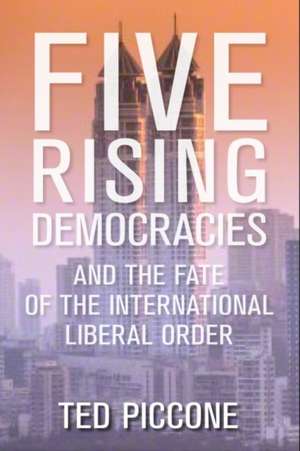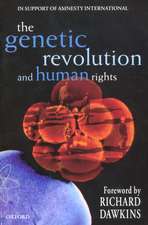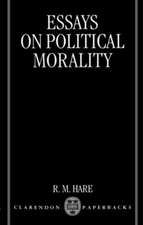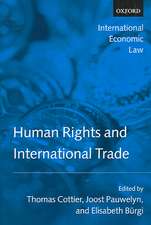Five Rising Democracies: And the Fate of the International Liberal Order: Geopolitics in the 21st Century
Autor Ted Picconeen Limba Engleză Paperback – 23 feb 2016
Shifting power balances in the world are shaking the foundations of the liberal international order and revealing new fault lines at the intersection of human rights and international security. Will these new global trends help or hinder the world's long struggle for human rights and democracy? The answer depends on the role of five rising democracies—India, Brazil, South Africa, Turkey, and Indonesia—as both examples and supporters of liberal ideas and practices.
Ted Piccone analyzes the transitions of these five democracies as their stars rise on the international stage. While they offer important and mainly positive examples of the compatibility of political liberties, economic growth, and human development, their foreign policies swing between interest-based strategic autonomy and a principled concern for democratic progress and human rights. In a multipolar world, the fate of the liberal international order depends on how they reconcile these tendencies.
Ted Piccone analyzes the transitions of these five democracies as their stars rise on the international stage. While they offer important and mainly positive examples of the compatibility of political liberties, economic growth, and human development, their foreign policies swing between interest-based strategic autonomy and a principled concern for democratic progress and human rights. In a multipolar world, the fate of the liberal international order depends on how they reconcile these tendencies.
Preț: 246.40 lei
Nou
Puncte Express: 370
Preț estimativ în valută:
47.16€ • 49.10$ • 39.85£
47.16€ • 49.10$ • 39.85£
Carte tipărită la comandă
Livrare economică 10-24 martie
Preluare comenzi: 021 569.72.76
Specificații
ISBN-13: 9780815725794
ISBN-10: 0815725795
Pagini: 250
Dimensiuni: 152 x 229 x 27 mm
Greutate: 0.59 kg
Editura: Brookings Institution Press
Colecția Brookings Institution Press
Seria Geopolitics in the 21st Century
ISBN-10: 0815725795
Pagini: 250
Dimensiuni: 152 x 229 x 27 mm
Greutate: 0.59 kg
Editura: Brookings Institution Press
Colecția Brookings Institution Press
Seria Geopolitics in the 21st Century
Recenzii
Ted Piccone has produced a balanced, detailed, and hopeful analysis of the essential role these five emerging powers can play in addressing global demands for greater democracy and human rights. Europe’s own contribution in this regard is well known. This book adds another untold dimension to the story and offers constructive ideas for building a stronger international consensus for universal values.
—Javier Solana, former European Union High Representative for Common Foreign and Security Policy
We have learned from our own national experience the importance of building democracy at home and of living with democratic neighbors. Piccone documents well how these two factors have propelled states like Brazil, India, and South Africa forward and recommends pragmatic ways to strengthen the international order. His assessment of recent history is timely and welcomed.
—Fernando Henrique Cardoso, former President of Brazil
In the many years I have known Ted Piccone, I have found him to be a thoughtful commentator on the subject of democratic transition and consolidation. His observations and perspectives are based on a deep understanding of democratic theory and practice. His analysis is enlightened by that experience, and this book is a welcome addition to the discussion of democratic development at a time when it is under threat.
—Kim Campbell, former Prime Minister of Canada
—Javier Solana, former European Union High Representative for Common Foreign and Security Policy
We have learned from our own national experience the importance of building democracy at home and of living with democratic neighbors. Piccone documents well how these two factors have propelled states like Brazil, India, and South Africa forward and recommends pragmatic ways to strengthen the international order. His assessment of recent history is timely and welcomed.
—Fernando Henrique Cardoso, former President of Brazil
In the many years I have known Ted Piccone, I have found him to be a thoughtful commentator on the subject of democratic transition and consolidation. His observations and perspectives are based on a deep understanding of democratic theory and practice. His analysis is enlightened by that experience, and this book is a welcome addition to the discussion of democratic development at a time when it is under threat.
—Kim Campbell, former Prime Minister of Canada
Notă biografică
Ted Piccone is a senior fellow with the Project on International Order and Strategy and the Latin America Initiative in the Foreign Policy program at Brookings. His research is focused on global democracy and human rights policies; U.S.-Latin American relations, including Cuba; emerging powers; and multilateral affairs.
Descriere
Shifting power balances in the world are shaking the foundations of the liberal international order and revealing new fault lines at the intersection of human rights and international security. Will these new global trends help or hinder the world's long struggle for human rights and democracy? The answer depends on the role of five rising democracies—India, Brazil, South Africa, Turkey, and Indonesia—as both examples and supporters of liberal ideas and practices.
Ted Piccone analyzes the transitions of these five democracies as their stars rise on the international stage. While they offer important and mainly positive examples of the compatibility of political liberties, economic growth, and human development, their foreign policies swing between interest-based strategic autonomy and a principled concern for democratic progress and human rights. In a multipolar world, the fate of the liberal international order depends on how they reconcile these tendencies.
Ted Piccone analyzes the transitions of these five democracies as their stars rise on the international stage. While they offer important and mainly positive examples of the compatibility of political liberties, economic growth, and human development, their foreign policies swing between interest-based strategic autonomy and a principled concern for democratic progress and human rights. In a multipolar world, the fate of the liberal international order depends on how they reconcile these tendencies.



























